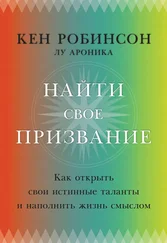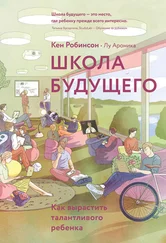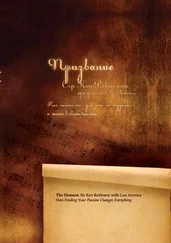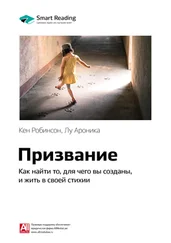Кен Робинсон - The Element
Здесь есть возможность читать онлайн «Кен Робинсон - The Element» весь текст электронной книги совершенно бесплатно (целиком полную версию без сокращений). В некоторых случаях можно слушать аудио, скачать через торрент в формате fb2 и присутствует краткое содержание. Год выпуска: 2009, ISBN: 2009, Издательство: Penguin Books Ltd, Жанр: Самосовершенствование, на английском языке. Описание произведения, (предисловие) а так же отзывы посетителей доступны на портале библиотеки ЛибКат.
- Название:The Element
- Автор:
- Издательство:Penguin Books Ltd
- Жанр:
- Год:2009
- ISBN:9780141911250
- Рейтинг книги:3 / 5. Голосов: 1
-
Избранное:Добавить в избранное
- Отзывы:
-
Ваша оценка:
- 60
- 1
- 2
- 3
- 4
- 5
The Element: краткое содержание, описание и аннотация
Предлагаем к чтению аннотацию, описание, краткое содержание или предисловие (зависит от того, что написал сам автор книги «The Element»). Если вы не нашли необходимую информацию о книге — напишите в комментариях, мы постараемся отыскать её.
The Element — читать онлайн бесплатно полную книгу (весь текст) целиком
Ниже представлен текст книги, разбитый по страницам. Система сохранения места последней прочитанной страницы, позволяет с удобством читать онлайн бесплатно книгу «The Element», без необходимости каждый раз заново искать на чём Вы остановились. Поставьте закладку, и сможете в любой момент перейти на страницу, на которой закончили чтение.
Интервал:
Закладка:
Many people set aside their passions to pursue things they don’t care about for the sake of financial security. The fact is, though, that the job you took because it “pays the bills” could easily move offshore in the coming decade. If you have never learned to think creatively and to explore your true capacity, what will you do then?
More specifically, what will our children do if we continue to prepare them for life using the old models of education? It’s very possible that our children will have multiple careers over the course of their working lives, not simply multiple jobs. Many of them will certainly have jobs we haven’t conceived yet. Isn’t it therefore our obligation to encourage them to explore as many avenues as possible with an eye toward discovering their true talents and their true passions?
When the only thing we know about the future is that it will be different, we would all be wise to do the same. We need to think very differently about human resources and about how we develop them if we are to face these challenges.
We need to embrace the Element.
What Is the Element?
The Element is the meeting point between natural aptitude and personal passion. What you’ll find in common among the people you’ve met in this chapter and the vast majority of the people you will meet in the coming pages is that they are doing the thing they love, and in doing it they feel like their most authentic selves. They find that time passes differently and that they are more alive, more centered, and more vibrant than at any other times.
Being in their Element takes them beyond the ordinary experiences of enjoyment or happiness. We’re not simply talking about laughter, good times, sunsets, and parties. When people are in their Element, they connect with something fundamental to their sense of identity, purpose, and well‐being. Being there provides a sense of self‐revelation, of defining who they really are and what they’re really meant to be doing with their lives. This is why many of the people in the book describe finding their Element as an epiphany.
How do we find the Element in ourselves and in others? There isn’t a rigid formula. The Element is different for everyone. In fact, that’s the point. We aren’t limited to one Element, by the way. Some people may feel a similar passion for one or more activities and may be equally good at them. Others may have a singular passion and aptitude that fulfills them far more than anything else does. There’s no rule about this. But there are, so to speak, elements of the Element that provide a framework for thinking about this and knowing what to look for and what to do.
The Element has two main features, and there are two conditions for being in it. The features are aptitude and passion. The conditions are attitude and opportunity. The sequence goes something like this: I get it; I love it; I want it; Where is it?
I Get It
An aptitude is a natural facility for something. It is an intuitive feel or a grasp of what that thing is, how it works, and how to use it. Gillian Lynne has a natural feel for dance, Matt Groening for telling stories, and Paul Samuelson for economics and math. Our aptitudes are highly personal. They may be for general types of activity, like math, music, sport, poetry, or political theory. They can also be highly specific—not music in general, but jazz or rap. Not wind instruments in general, but the flute. Not science, but biochemistry. Not track and field, but the long jump.
Throughout this book, you will be meeting people with a profound natural grasp for all sorts of things. They’re not good at everything, but at something in particular. Paul Samuelson is naturally good at math. Others are not.
I happen to be one of those others. I was never very good at math at school and was delighted to leave it behind when I finished school. When I had my own children, math reared up again like the monster in the movie that you thought was dead. One of the perils of being a parent is that you have to help your kids with their homework. You can bluff it for a while, but you know deep down that the day of reckoning is approaching.
Until she was twelve, my daughter, Kate, thought I knew everything. This was an impression I was very keen to encourage. When she was little, she’d ask me to help if she was stuck with an English or math problem. I’d look up with a confident smile from whatever I was doing, put my arm around her, and say something like, “Well, let’s see here,” pretending to share the difficulty so she’d feel better about not getting it. Then she’d gaze at me adoringly as I swept effortlessly, like a math god, through the four‐times table and simple subtraction.
One day when she was fourteen, she came home with a page full of quadratic equations, and I felt the familiar cold sweat. At this point, I introduced learning‐by‐discovery methods. I said, “Kate, there’s no point in me telling you the answers. That’s not how we learn. You need to work this out for yourself. I’ll be outside having a gin and tonic. And by the way, even when you’ve done it, there’s no point showing me the answers. That’s what teachers are for”
The next week she brought me home a cartoon strip she’d found in a magazine. She said, “This is for you.” The strip showed a dad helping his daughter with her homework. In the first frame, he leaned over her shoulder and said, “What have you got to do?” The girl replied, “I have to find the lowest common denominator.” The father said, “Are they still looking for that? They were trying to find that when I was in school.” I know how he felt.
For some people, though, math is as beautiful and engaging as poetry and music is for others. Finding and developing our creative strengths is an essential part of becoming who we really are. We don’t know who we can be until we know what we can do.
I Love It
Being in your Element is not only a question of natural aptitude. I know many people who are naturally very good at something, but don’t feel that it’s their life’s calling. Being in your Element needs something more—passion. People who are in their Element take a deep delight and pleasure in what they do.
My brother Ian is a musician. He plays drums, piano, and bass guitar. Years ago, he was in a band in Liverpool that included an extremely talented keyboard player named Charles. After one of their gigs, I told Charles how well I thought he’d played that night. Then I said that I’d love to be able to play keyboards that well. “No, you wouldn’t,” he responded. Taken aback, I insisted that I really would. “No,” he said. “You mean you like the idea of playing keyboards. If you’d love to play them, you’d be doing it.” He said that to play as well he did, he practiced every day for three or four hours in addition to performing. He’d been doing that since he was seven.
Suddenly playing keyboards as well as Charles did didn’t seem as appealing. I asked him how he kept up that level of discipline. He said, “Because I love it.” He couldn’t imagine doing anything else.
I Want It
Attitude is our personal perspective on our selves and our circumstances—our angle on things, our disposition, and emotional point of view. Many things affect our attitudes, including our basic character, our spirit, our sense of self‐worth, the perceptions of those around us, and their expectations of us. An interesting indicator of our basic attitude is how we think of the role of luck in our lives.
People who love what they do often describe themselves as lucky. People who think they’re not successful in their lives often say they’ve been unlucky. Accidents and randomness play some part in everybody’s lives. But there’s more to luck than pure chance. High achievers often share similar attitudes, such as perseverance, self‐belief, optimism, ambition, and frustration. How we perceive our circumstances and how we create and take opportunities depends largely on what we expect of ourselves.
Читать дальшеИнтервал:
Закладка:
Похожие книги на «The Element»
Представляем Вашему вниманию похожие книги на «The Element» списком для выбора. Мы отобрали схожую по названию и смыслу литературу в надежде предоставить читателям больше вариантов отыскать новые, интересные, ещё непрочитанные произведения.
Обсуждение, отзывы о книге «The Element» и просто собственные мнения читателей. Оставьте ваши комментарии, напишите, что Вы думаете о произведении, его смысле или главных героях. Укажите что конкретно понравилось, а что нет, и почему Вы так считаете.












